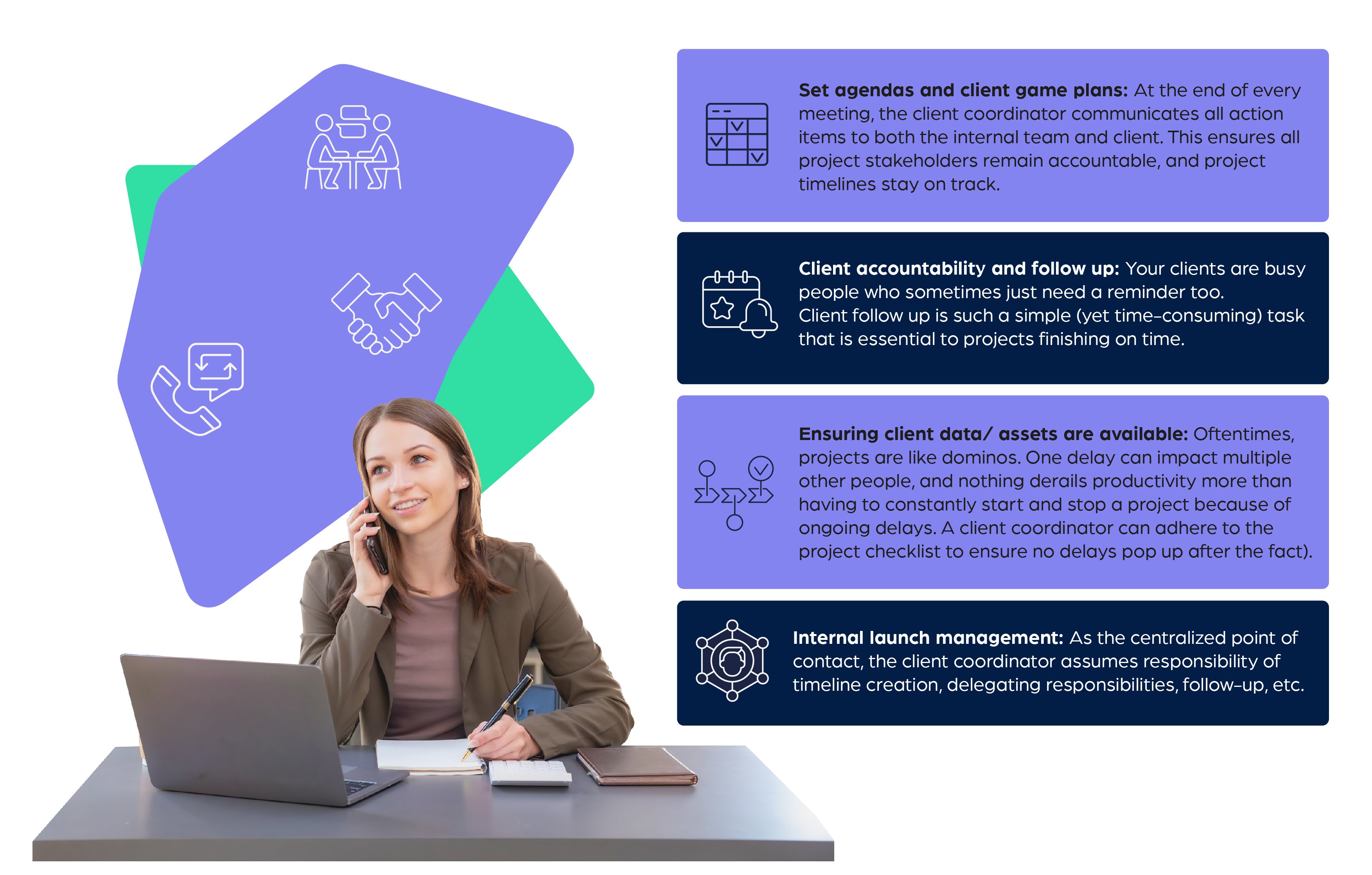
Picture this:
Your team has submitted the first draft of a new client deliverable, and is eagerly awaiting on the client’s feedback to move things forward.
Suddenly one day waiting for a response turns into five, and your team is stuck aimlessly waiting to finish off the project.
Not only that, but you’ve schedule other client work around this client, and your deadlines are starting to conflict with each other.
Has this ever happened to you and your team?
When you don’t have consistent client communication processes in place, it’s only a matter of time before your operations (and bank account) start to suffer.
Do any of these sound familiar?:
-
Your productivity is constantly derailed thanks to your bottomless inbox.
-
You have so many client projects going on at once you’re having a hard time keeping your deadlines straight.
-
Your clients are seriously costing you in operational expenses because they move at record-slow speed.
-
You’re having a hard time forecasting your finances because timelines are constantly changing.
If even ONE of these resonated with you, it may be time to seriously consider giving your client-facing processes an overhaul.
What is a client coordinator?
When it comes to managing client relationships, it can be easy to become overwhelmed with multiple tasks and responsibilities. That's why introducing a client coordinator to manage client communications can be a game changer.
Without a client coordinator, there is a risk of communication gaps, missed deadlines, and ultimately, client dissatisfaction. Without delegating the task of staying on top of your clients, your team might be wasting too much time waiting for crucial information .
Clients may also feel that they are not being heard or valued if they have to go through multiple people to get answers to their questions. These issues can ultimately lead to losing clients and damaging your agency's reputation.
By having a dedicated client coordinator, your team can focus on what they do best while still ensuring that clients are receiving the attention and communication they deserve.
Making the decision to bring on new team members is one that should not be taken lightly.
No matter if you’re on the fence about introducing the role to your agency, or have a client coordinator you want to make better use of, our framework will help you optimize your client communication processes.
So what can you offload?:

Before introducing ANY new role to your agency, it is important to first map it out in its entirety. You’ll need to have a thorough understanding of what your client coordinator role will entail so you can find the perfect candidate for the job.
It is typically most effective to designate the following responsibilities to your client coordinator:
-
Set agendas and client game plans: At the end of every meeting, the client coordinator communicates all action items to both the internal team and client. This ensures all project stakeholders remain accountable, and project timelines stay on track.
-
Client accountability and follow up: Your clients are busy people who sometimes just need a reminder too. Client follow up is such a simple (yet time-consuming) task that is essential to projects finishing on time.
-
Ensuring client data/ assets are available: Oftentimes, projects are like dominos. One delay can impact multiple other people, and nothing derails productivity more than having to constantly start and stop a project because of ongoing delays. A client coordinator can adhere to the project checklist to ensure no delays pop up after the fact).
-
Internal launch management: As the centralized point of contact, the client coordinator assumes responsibility of timeline creation, delegating responsibilities, follow-up, etc.
What role is best for YOU?
Ultimately, your vision of what a client coordinator is should reflect you and your agency’s needs. Many agency owners fall into the trap of confusing this role with that of a project manager (which often requires a higher paycheck).
While they have some similarities, ultimately a project manager is less focused on customer experience, and more so focused on optimizing operations to reduce costs and increase profit margins.

It is also important to recognize these differences to avoid overburdening your client coordinator. As $20K (or more) in annual salary differentiates these two roles, it’s important to stay in scope. As a general rule, your agency doesn’t need a project manager until you are 12-20 Clients.
The magic is in the details
Delegating client communications can be a bit panic-inducing at first, so if you’re feeling hesitant, you’re not alone.
But when you stop holding on to that responsibility, you say goodbye to:
-
The annoyance of feeling obligated to respond to a client email you received at 9 PM on a Friday.
-
A never-ending to-do list that results in frequent 60-hour work weeks.
-
Embarrassing half-baked client communications you’re throwing together while trying to finish a dozen things at once.
When following our framework, you’re guaranteed to make one of the best investments that you’ll make all year.
By adding that extra duty of care to the client-facing side of your business, you’ll be able to deliver on time, get the client information you need WHEN you need it and manage competing deadlines with ease.
Need a little extra help getting this new role off the ground? Just contact the Creative Agency Success team, and we’d be happy to help.
